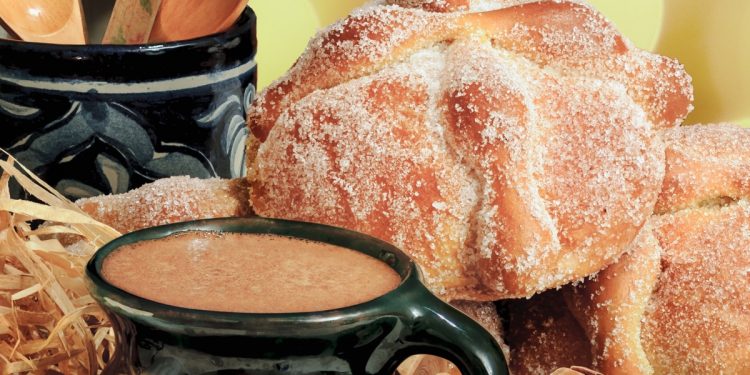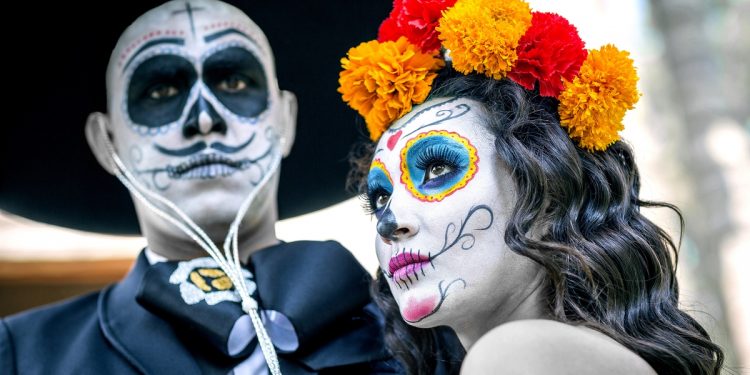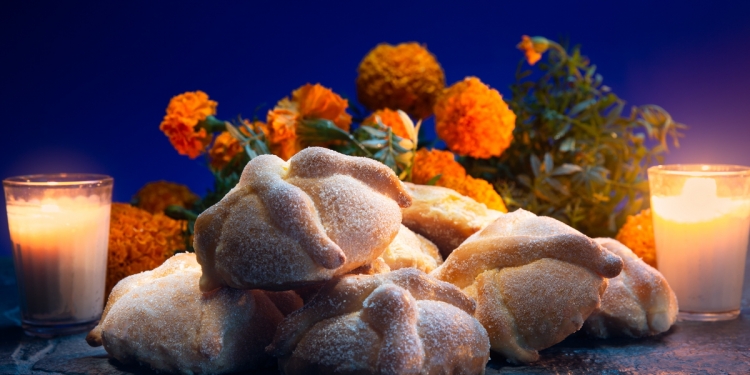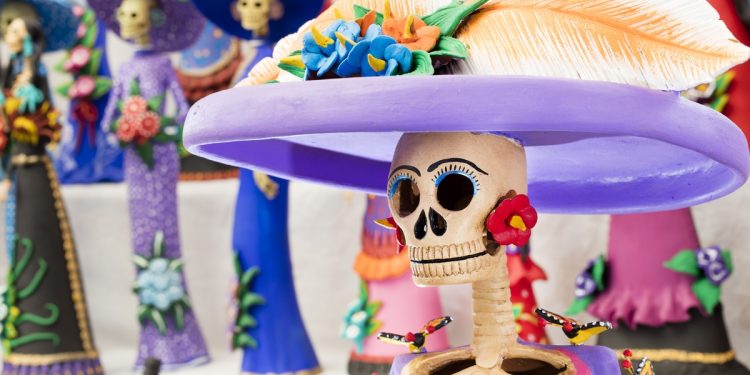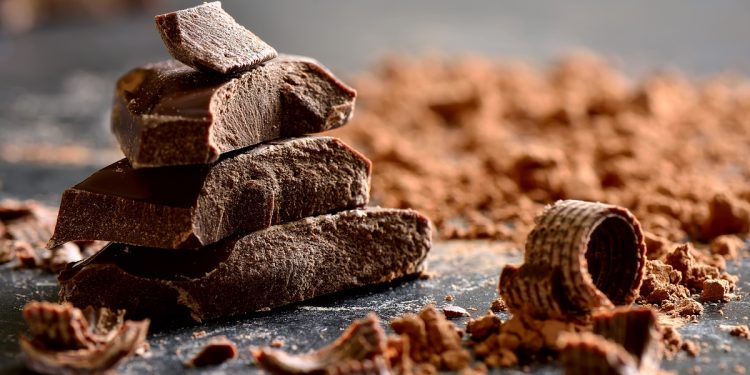The two most common items seen on ofrendas during the Day of the Dead traditions are Mexican marigold flowers and Pan de Muerto—literally translated, Bread of the Dead.
A delicious seasonal pleasure
Like Easter eggs or turkey dinner at Thanksgiving, Bread of the Dead is a treat that people look forward to when it arrives and miss when its season passes. In years past, Pan de Muerto was only available in Mexico between late September and early November; however, in a constant drive to ‘de-seasonalize’ product lines and extend sales opportunities, Mexican supermarkets now sell Pan de Muerto as early as August and as late as December in some places.
It’s bread—with some seasonal twists
Bread of the Dead is baked like any other bread—except that it has a few treats added to enrich the mixture and which serve to make it special. The generous quantity of butter mixed into the bake accompanied by a citrus glaze and topped with a liberal dusting of sugar make this loaf a high-calorie sweet feast that, when fresh, melts deliciously on the tongue.
Pan de Muerto is baked in the shape of a bun, with sizes ranging from individual ‘mini’ breads —an ideal companion to a mug of hot chocolate or coffee— to loaves that resemble a large cake which can be sliced and served on plates in similar fashion. A remarkable feature of the bread is the presence of “bones,” formed from the same sweet mixture and laid over the dome-shaped dough. These give the bread a somewhat macabre look but rest well with the theme.
The recipe for Bread of the Dead is quite simple and you can find a selection of recipes online, examples here. The succulent citrus undertones are bestowed by the addition of zest from the juice of a fresh orange or orange-blossom water.
A warming delight on cool autumnal evenings
The bread is best when taken on the same day it was baked, accompanied with a mug of hot chocolate made the Mexican way. (Add ground cinnamon to the chocolate and whisk.)
One of the long-standing traditions observed by people who attend the graves of their loved ones now deceased is to take freshly-baked Pan de Muerto and drink Mexican hot chocolate; usually after dark when the cool November temperatures begin to make their presence felt in the night air.
Pan de Muerto is one of those Mexican foods which many foreigners have yet to try. If you live in Mexico, or visit between late October and early November, then you’ll know (or come to know) about Day of the Dead and taste the delicious bread that attends this important occasion.
Learn more about Day of the Dead in Mexico
We publish guides and articles to help you discover more about Day of the Dead in Mexico, as well as Pátzcuro and Oaxaca City.
- Articles to discover Day of the Dead in Mexico
- How to plan ahead for Day of the Dead
- Celebrating life on Day of the Dead
- Meet the elegant Catrinas
- Altars and offerings for Day of the Dead
- The iconic flower synonymous with Day of the Dead
- Children’s Calaverita traditions
- Guides to Pátzcuaro and Oaxaca City
Experience Day of the Dead with Mexperience
We work with long-established experts who know Mexico intimately and will arrange an inspiring travel experience for you. Contact us and we’ll help you to create a memorable visit: Plan Your Mexico Trip
Mexico in your inbox
Our free newsletter about Mexico brings you a monthly round-up of recently published stories and opportunities, as well as gems from our archives.

